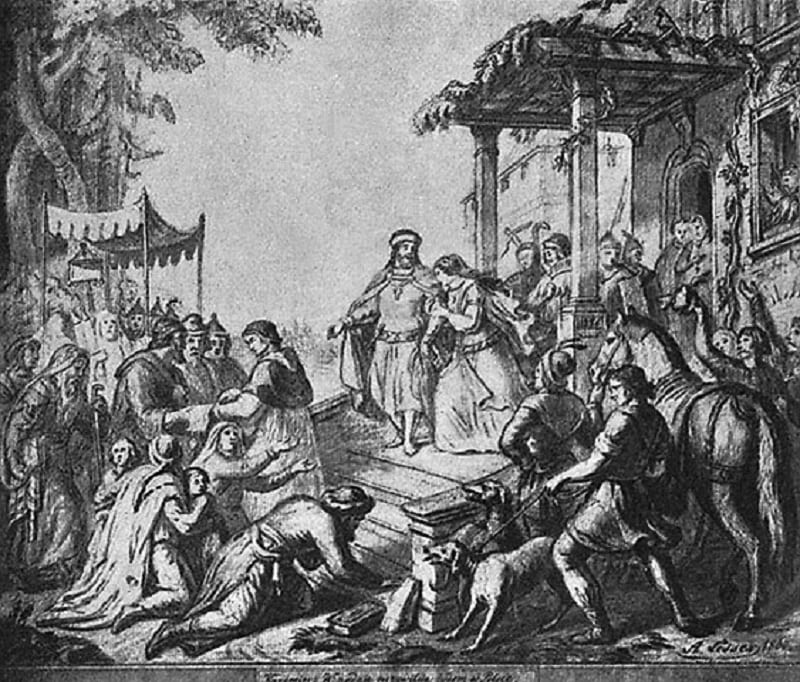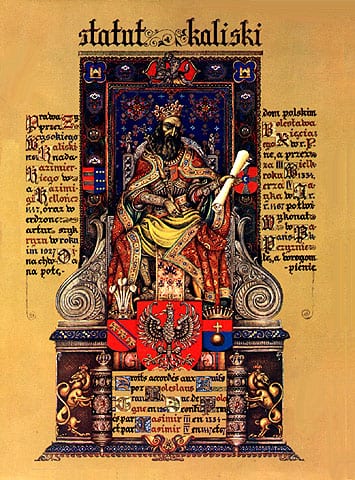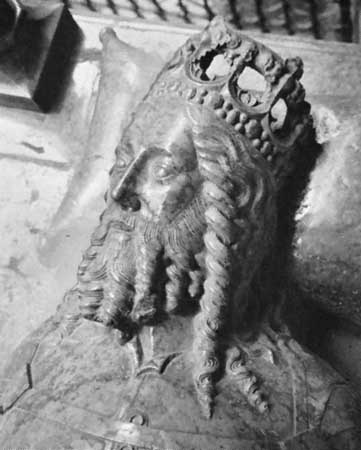Jewish-Polish history definitely had its tragic moment – but over centuries of strange co-existence there were moments of optimism too. Included stories of the Jews who were “Rulers of Poland”. Prominent historian Konstanty Gebert explores a collection of historical facts and myths.

Abraham Prochownik
After the gory but just death of Prince Popiel (9th century CE), eaten alive by mice after having poisoned his alleged rivals, Polish nobles assembled in Kruszwica to elect his successor. Unable to agree, they decided that whoever will be the first to cross the city gates next morning will be their ruler – and the first was none other than an itinerant Jewish trader, Abraham Prochownik. He, however, wisely declined the honor and, just as wisely, suggested the no less wise Prince Piast be elected, thus creating Poland’s first royal dynasty.
The Piasts were in fact Poland’s first rulers, as attested i.a. by reports send by Ibrahim [i.e. Abraham] ibn Jacob, a Jewish trader from Toledo, who visited the country in the 10th century CE.
Esther, mistress of King Casimir
The mediaeval chronicler Jan Długosz alleges that king Casimir the Great (14th century) took himself a Jewish lover, and was so besotted by her love that he granted Jews numerous privileges.
Since Długosz strongly disapproves of such tolerance of this “stinking element”, as he calls Jews, and no other historical evidence was found, one can suppose the story was to rationalize such unbecoming behavior by a Polish king.

Saul Wahl
After the death of King Stefan Bathory (1586) the nobility could not decide on his successor. When the deadline for his election passed, Prince Mikołaj Radziwiłł “Sierotka” suggest that the elect an Interrex, or “Inter-king” until their decision is made, and suggested for that post a rich Jewish merchant, Saul Wahl, who had shown the Prince great help and heart during his Italian travels. Wahl was made Interrex, and passed decrees favorable to Jews, until he was dethroned by his duly elected successor.
An interregnum of one year in fact occurred after Bathory’s death, because two contenders had been elected; it ended with Sigismund Vasa the Third defeated Maximillian Hapsburg the Third and assumed the throne. A Jewish merchant named Saul is mentioned as a generous savior of Prince Radziwiłł in the latter’s memoirs, and the name Wahl does mean “elections” in German. Also, the Primate of the Catholic Church could by law become under certain conditions become Interrex. No mention of Interrex Saul Wahl exists in historical sources, however, and the story seems an improbable conflation of the previous two.

Modern era
The fact that numerous prominent leaders of Communist Poland (1944-1989), especially in the immediate post-war years, were of Jewish origin, has fueled the popular antisemitic myth that Jews run the country, to its detriment. In fact, the number of Jews in Poland, and in power of any kind, systematically declined with the passage of time, and the last Jewish Communists were purged in an “anti-Zionist” campaign in 1968. The country’s current Jewish population is estimated at 8,000.
This notwithstanding, a Google query in Polish for “Jews rule Poland” produced this year over 900,000 results, and a 2010 survey showed that over 1/3 of the respondents believe that Jews “have too much influence on Polish political life”.